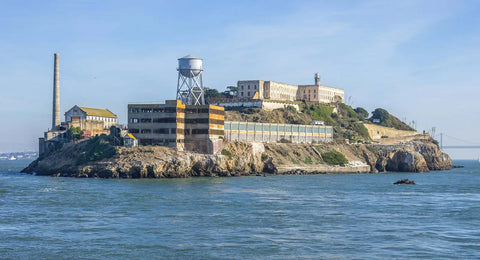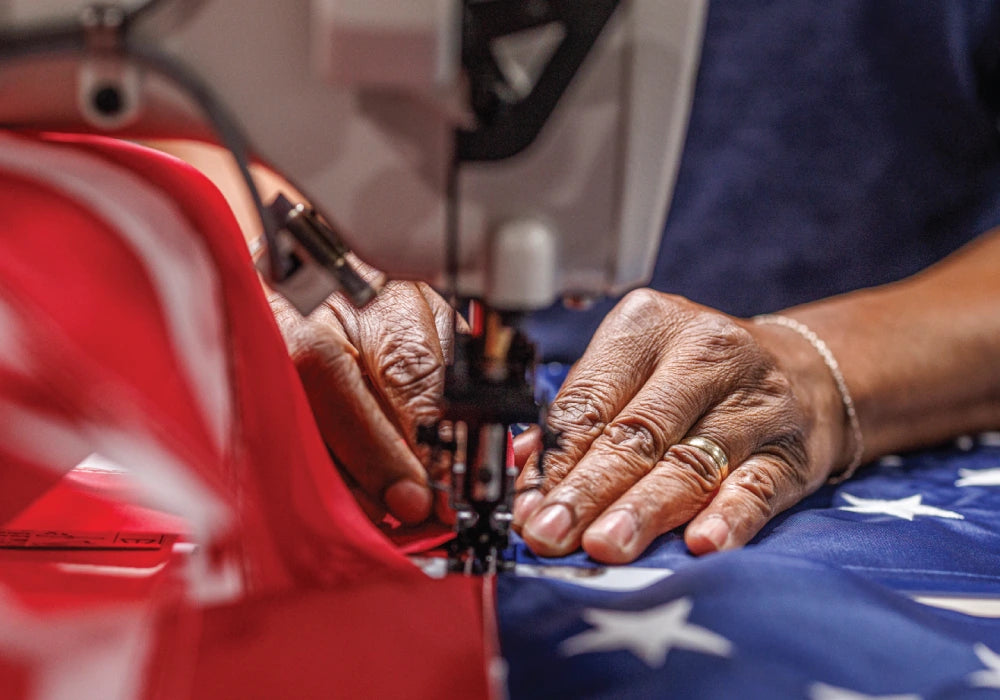March 19

1931
In an attempt to lift the state out of the hard times of the Great Depression, the Nevada state legislature voted to legalize gambling. At the beginning of the Depression, Nevada’s mines were in decline, and its economy was in shambles. Nevada’s state legislature responded to population flight by taking the drastic measure of legalizing gambling and, later in the year, divorce. Established in 1905, Las Vegas, Nevada, has since become the gambling and entertainment capital of the world, famous for its casinos, nightclubs, and sporting events. In the first few decades after the legalization of gambling, organized crime flourished in Las Vegas. Today, state gambling taxes account for the lion’s share of Nevada’s overall tax revenues.

1966
Underdog Texas Western College defeated Kentucky, 72-65, in the NCAA men’s college basketball final—the first NCAA title for an all-Black starting five. “I wasn’t out to be a pioneer when we played Kentucky,” Texas Western coach Don Haskins told the Los Angeles Times years later. “I was simply playing the best players on the team, and they happened to be Black.” Texas Western's journey to the 1966 NCAA championship was depicted in the 2006 film Glory Road. The year after winning the title, the school became the University of Texas-El Paso (UTEP).


2003
The United States, along with coalition forces primarily from the United Kingdom, initiated war on Iraq. Just after explosions began to rock Baghdad, Iraq’s capital, U.S. President George W. Bush announced in a televised address, “At this hour, American and coalition forces are in the early stages of military operations to disarm Iraq, to free its people and to defend the world from grave danger.” President Bush and his advisors built much of their case for war on the idea that Iraq, under dictator Saddam Hussein, possessed or was in the process of building weapons of mass destruction. The U.S. declared an end to the war in Iraq on December 15, 2011, nearly ten years after the fighting began.
March 20

1852
Harriet Beecher Stowe’s anti-slavery novel, Uncle Tom’s Cabin, was published. It would go on to sell 300,000 copies within three months and was so widely read that when President Abraham Lincoln met Stowe in 1862, he reportedly said, “So this is the little lady who made this big war.” Stowe was inspired by her encounters with fugitive enslaved people along the Underground Railroad and wrote Uncle Tom’s Cabin in reaction to recently tightened fugitive slave laws. The book had a major influence on the way the American public viewed slavery. Along with Ralph Waldo Emerson, Harriet Beecher Stowe became one of the original contributors to The Atlantic, which launched in November 1857.

1854
The Republican Party was formed when former members of the Whig Party met to establish a new party to oppose the spread of slavery into the western territories. The Republicans rapidly gained supporters in the North, and by 1860, the majority of the Southern slave states were publicly threatening secession if the Republicans won the presidency. Republican Abraham Lincoln was elected president over a divided Democratic Party and South Carolina formally seceded from the Union weeks later. After the Civil War, the Republican-dominated Congress forced a “Radical Reconstruction” policy on the South, which saw the passage of the 13th, 14th, and 15th amendments and the granting of equal rights to all Southern citizens. The party continued to dominate the presidency until the election of FDR in 1933.

1965
President Lyndon B. Johnson put the Alabama National Guard under federal control to protect a civil rights march from Selma to Montgomery, the state capital. A previous march organized by Martin Luther King Jr. was halted after state and local police brutally tear gased and billy clubbed protestors. After a federal court ruled another march could proceed, Alabama Gov. George Wallace assured the president that the Alabama National Guard would protect them. But Wallace, a segregationist, then reneged and demanded federal troops be sent instead. Furious, Johnson called up the Guard. The five-day march to the Alabama Capitol began on March 21 and covered 54 miles. It was protected by 2,000 Army soldiers, 1,900 federalized Guard members and scores of FBI agents and federal marshals.
March 21

1952
The Moondog Coronation Ball, widely regarded as history's first major rock-and-roll concert, was held at the Cleveland Arena in Cleveland, OH. The “Moondog” in question was the legendary disk jockey Alan Freed, the self-styled “father of rock and roll” who was then the host of the enormously popular “Moondog Show." Originally a classical music show, Freed started featuring rhythm-and-blues records and liberally used the phrase “rock and roll” to describe the music he was now promoting. Unfortunately, an estimated 20,000-25,000 fans turned out for an event being held in an arena with a capacity of only 10,000. Less than an hour into the show, police quickly moved in to stop the show almost as soon as it began.

1963
Alcatraz Prison in San Francisco's Bay closed down and transfered its last prisoners. At its peak period of use in 1950s, “The Rock," or "America’s Devil Island," housed over 200 inmates at the maximum-security facility. The twelve-acre rocky island, one and a half miles from San Francisco, featured the most advanced security of the time. The former prison remains an icon of American prisons for its harsh conditions and record for being inescapable. In 1972, Alcatraz was transferred to the Department of Interior to become part of Golden Gate National Recreation Area. It was designated as a National Historic Landmark in 1986.

1980
President Jimmy Carter announced that the U.S. would boycott the Olympic Games scheduled to take place in Moscow that summer. The announcement came after the Soviet Union failed to comply with Carter’s February 20, 1980, deadline to withdraw its troops from Afghanistan. Reaction to Carter’s decision was mixed. Many Americans pitied the athletes who had worked so hard toward their goal of competing in the Olympics and who might not qualify to compete in the next games in 1984. At the same time, the boycott symbolized commitment many Americans felt to fighting the oppressive, anti-democratic Soviet regime.
March 22

1765
The British government passed the Stamp Act in an effort to raise funds to pay off debts and defend the vast new American territories won from the French in the Seven Years’ War (1756-1763). The legislation levied a direct tax on all materials printed for commercial and legal use in the colonies. In response, colonists raised the issue of taxation without representation, and formed societies throughout the colonies to rally against the British government and nobles who sought to exploit the colonies as a source of revenue and raw materials. Realizing that it actually cost more to enforce the Stamp Act in the protesting colonies than it did to abolish it, the British government repealed the tax the following year.


1934
The first Masters golf championships teed off in Augusta, Georgia. The Augusta National Golf Club course presented difficulties for many of the golfers, but Horton Smith would go on to win the tournament. However, much of the coverage was focused on Bobby Jones, the man who founded and helped design golf’s most famous course. While the first to achieve a Grand Slam by winning all four major tournaments in the same year, Jones struggled in his inaugural round at the Masters. He finished tied for 13th, 10 shots behind Smith.

1983
The Pentagon awarded a production contract worth more than $1 billion to AM General Corporation to develop 55,000 High Mobility Multipurpose Wheeled Vehicles (HMMWV). Nicknamed the Humvee and designed to transport troops and cargo, the wide, rugged vehicles entered the spotlight when they were used by the American military during the 1989 invasion of Panama and the Persian Gulf War in the early 1990s. In 1992, a civilian version of the Humvee, known as the Hummer, went on sale. The hulking, attention-grabbing road warrior tipped the scales at some 10,000 pounds and got less than 10 miles per gallon. It was a hit with Hollywood celerities, such as Arnold Schwarzenegger, who went on to own a fleet.
March 23

1839
The initials “O.K.” were first published in The Boston Morning Post. Meant as an abbreviation for “oll korrect,” a popular slang misspelling of “all correct” at the time, OK steadily made its way into the everyday speech of Americans. During the late 1830s, it was a favorite practice among younger, educated circles to misspell words intentionally, then abbreviate them and use them as slang when talking to one another. Of all the abbreviations used during that time, OK was propelled into the limelight when it was printed in the Boston Morning Post as part of a joke. Its popularity exploded when it was picked up by contemporary politicians, including incumbent president Martin Van Buren during his reelection campaign.

1983
In an address to the nation, President Ronald Reagan proposed that the United States embark on a program to develop antimissile technology that would make the country nearly impervious to attack by nuclear missiles. Reagan’s speech marked the beginning of what came to be known as the controversial Strategic Defense Initiative. After talks with the Soviets were stalled over issues of what kinds of nuclear weapons should be controlled, Reagan became enamored with proposals of antimissile satellites utilizing laser beams or other means to knock Soviet nuclear missiles out of the sky before they had a chance to impact the US. The Strategic Defense Initiative never really got off the ground–by the mid-1990s, following the collapse of the Soviet Union and with costs skyrocketing, it was quietly shelved.

2011
Actress Elizabeth Taylor, who appeared in more than 50 films, won two Academy Awards and was synonymous with Hollywood glamour, died of complications from congestive heart failure at a Los Angeles hospital at age 79. The violet-eyed Taylor began her acting career as a child and spent most of her life in the spotlight. Known for her striking beauty, she was married eight times and later in life became a prominent HIV/AIDS activist.
March 24

1965
The first “teach-in” was conducted at the University of Michigan at Ann Arbor; two hundred faculty members participate by holding special anti-war seminars. Regular classes were canceled, and rallies and speeches dominated for 12 hours. On March 26, there was a similar teach-in at Columbia University in New York City; this form of protest eventually spread to many colleges and universities.


1989
One of the worst oil spills in U.S. territory began when the supertanker Exxon Valdez, owned and operated by the Exxon Corporation, ran aground on a reef in Prince William Sound in southern Alaska. An estimated 11 million gallons of oil eventually spilled into the water. Attempts to contain the massive spill were unsuccessful, and wind and currents spread the oil more than 100 miles from its source, eventually polluting more than 700 miles of coastline. Hundreds of thousands of birds and animals were adversely affected by the environmental disaster. It was later revealed that Joseph Hazelwood, the captain of the Valdez, was drinking at the time of the accident and allowed an uncertified officer to steer the massive vessel.


1996
U.S. astronaut Shannon Lucid transferred to the Russian space station Mir from the U.S. space shuttle Atlantis for a planned five-month stay. Lucid was the first female U.S. astronaut to live in a space station. She returned to Earth aboard Atlantis the following September, touching down at Edwards Air Force Base in California. Her 188-day sojourn aboard Mir set a new space endurance record for an American and a world endurance record for a woman.
March 25
 .
. 
1911
In one of the darkest moments of America’s industrial history, the Triangle Shirtwaist Company factory in New York City burned down, killing 146 workers. Owned by Max Blanck and Isaac Harris, it was a sweatshop in every sense of the word. Though Blanck and Harris were put on trial for manslaughter, they managed to get off scot-free. Still, the massacre for which they were responsible did finally compel the city to enact reform. In addition to the Sullivan-Hoey Fire Prevention Law passed that October, the New York Democratic set took up the cause of the worker and became known as a reform party.

1954
RCA started production of its first color tv set, the CT-100. It was the first color television produced for the masses and, with a $1,000 price tag, was a luxury item. This hulking beast, its innards packed with vacuum tubes, showed a picture that measured just 12.5 inches wide. About 4,000 were produced, and only 300 or so are known to exist today. While the CT-100 was, for consumers, the first color TV on the market, it wasn't the first color TV ever made.


1967
The Reverend Martin Luther King Jr., lead a march of 5,000 antiwar demonstrators in Chicago. In an address to the demonstrators, King declared that the Vietnam War was “a blasphemy against all that America stands for.” King first began speaking out against American involvement in Vietnam in the summer of 1965. In addition to his moral objections to the war, he argued that the war diverted money and attention from domestic programs to aid the Black poor. He was criticized by some prominent civil rights leaders for attempting to link civil rights and the antiwar movement.




